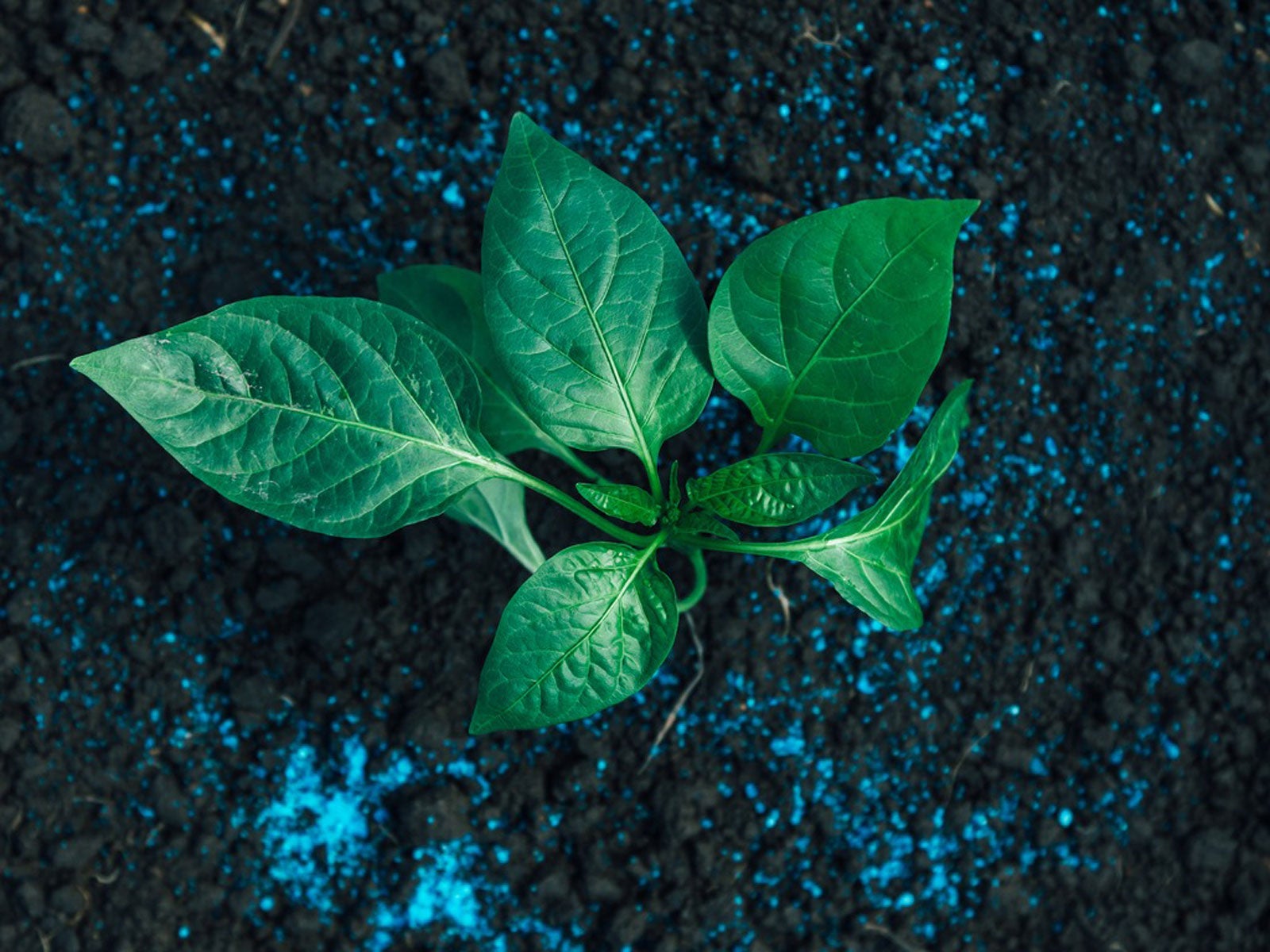Find Out the Best Fertilizers for Peppers: Top Picks for Optimum Growth
Find Out the Best Fertilizers for Peppers: Top Picks for Optimum Growth
Blog Article
Organic Vs. Synthetic Fertilizers: Which Is Best for Nurturing Healthy And Balanced Pepper Plants?
In the realm of supporting healthy pepper plants, the selection between synthetic and natural fertilizers stands as an essential decision with far-ranging effects. While both options aim to offer vital nutrients to support plant growth, the subtleties of their influence on the dirt, plant health and wellness, and the setting trigger a dispute that mirrors throughout the gardening neighborhood. Comprehending the distinctive advantages and possible challenges of each plant food kind is crucial for pepper cultivators seeking to enhance their returns while preserving an eco-conscious and lasting approach.
Advantages of Organic Plant Foods
Organic plant foods supply an environmentally-friendly and sustainable method to nourishing pepper plants, giving crucial nutrients without the use of artificial chemicals. These all-natural plant foods are acquired from organic resources such as garden compost, manure, bone meal, and seaweed, advertising dirt health and wellness and biodiversity. Unlike synthetic plant foods, natural choices launch nutrients slowly, making certain a constant and balanced supply for pepper plants to thrive.
One significant benefit of natural fertilizers is their capability to improve dirt structure and water retention. By enhancing soil health, organic fertilizers advertise useful microbial task, which aids in nutrient uptake by pepper plants. Furthermore, natural fertilizers reduce the risk of chemical run-off, securing water sources from contamination and safeguarding the environment.
Moreover, natural fertilizers contribute to lasting soil fertility by promoting the development of helpful dirt organisms. These organisms assist break down raw material, releasing nutrients in a kind that is conveniently available to pepper plants. best fertilizers for peppers. By cultivating a healthy and balanced dirt ecosystem, organic plant foods support sustainable pepper farming techniques that benefit both plants and the setting
Drawbacks of Artificial Fertilizers
Artificial fertilizers, in comparison to their organic counterparts, position numerous negative aspects when used to nurture pepper plants, influencing both plant health and wellness and environmental sustainability. One major disadvantage of artificial fertilizers is their propensity to seep nutrients from the dirt swiftly.
Additionally, the overuse of artificial fertilizers can add to water contamination. Excess plant foods not soaked up by plants can clean away right into water bodies, causing eutrophication, where algae blossoms deplete oxygen levels in the water, damaging aquatic life. Artificial plant foods are commonly obtained from non-renewable resources, such as fossil fuels, adding to carbon exhausts and ecological deterioration throughout their manufacturing.
Nutrient Absorption Comparison
Effective nutrient absorption plays a vital function in the general health and wellness and growth of pepper plants. When comparing artificial and natural fertilizers in terms of nutrient absorption, organic plant foods have the benefit of providing an extra well balanced and slow-release source of nutrients (best fertilizers for peppers). Organic plant foods contain a range of macro and micronutrients that are not only advantageous for the plants however also advertise healthy and balanced soil microbial task, which helps in nutrient uptake. On the other hand, artificial fertilizers commonly visit our website give a fast launch of here nutrients, which can result in seeping and drainage, resulting in reduced nutrient absorption rates by the plants.
Furthermore, organic fertilizers improve soil structure and water retention ability, allowing pepper plants to access nutrients a lot more efficiently. This improved dirt top quality promotes origin development, making it possible for better nutrient absorption. Artificial plant foods, although originally increasing plant growth as a result of their high nutrient focus, may impede lasting nutrient absorption by degrading dirt health in time.
Environmental Effect Considerations

On the various other hand, synthetic fertilizers, although often even more concentrated and right away offered to plants, can have destructive impacts on the atmosphere if not applied properly (best fertilizers for peppers). Their production needs high power inputs, resulting in greenhouse gas discharges and adding to climate adjustment. The overflow of excess synthetic plant foods can pollute water resources, leading to eutrophication and damaging marine ecosystems.
Ideal Plant Food Practices for Peppers
To achieve this, it is important to adhere to best plant food practices customized to the specific needs of pepper plants. One essential technique is to carry out a soil test before applying any kind of fertilizers.
One more essential method is to feed pepper plants More Info at the correct time. Typically, peppers benefit from receiving fertilizer at growing and then once more when they begin to blossom. Over-fertilizing can bring about nutrition discrepancies and harm the plants, so it is crucial to adhere to advised application prices.
Additionally, picking a balanced fertilizer with an NPK ratio that fits pepper plants' needs is basic. Organic plant foods, such as garden compost or manure, can be exceptional options as they release nutrients gradually and boost soil structure gradually. Nevertheless, synthetic fertilizers can supply a quick nutrient increase when needed. Eventually, integrating organic and artificial fertilizers judiciously can assist nurture healthy and balanced pepper plants while minimizing ecological influence.
Final Thought

Organic plant foods provide an environmentally-friendly and sustainable strategy to nourishing pepper plants, supplying essential nutrients without the use of artificial chemicals. Unlike artificial plant foods, natural alternatives launch nutrients gradually, ensuring a well balanced and stable supply for pepper plants to prosper.
Artificial plant foods, in comparison to their natural equivalents, pose numerous disadvantages when utilized to nourish pepper plants, affecting both plant health and ecological sustainability. When contrasting natural and artificial plant foods in terms of nutrient absorption, natural plant foods have the advantage of supplying an extra balanced and slow-release source of nutrients.Moreover, organic plant foods boost soil framework and water retention capacity, allowing pepper plants to gain access to nutrients more effectively.
Report this page